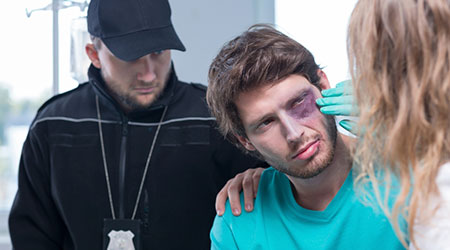The general public might believe that security for hospitals and other medical facilities starts at the entrance, and in a way that’s true. Access control technology and door hardware are essential elements of security for these facilities. But for many hospitals, security actually begins farther away from the actual building and has a much different look.
As concerns simmer over the death of George Floyd and others at the hands of law enforcement, hospital police forces — backed by the powerful health care lobby — are being formed without basic measures long used to hold officers accountable, according to the Milwaukee Journal Sentinel. Twenty-nine states and the District of Columbia allow hospitals to have their own sworn police departments, with many of them at county- or state-owned facilities.
Hospital police departments are typically not required to answer to the public. Unless they are an arm of a government-owned hospital, these police departments can refuse to disclose key statistics. Hospitals also don't have to explain how they hire and train officers and when they discipline them for misconduct.
It is difficult for the public — including the very hospital employees these police departments are supposed to protect — to know how well the forces follow up on cases, if they reduce crime and whether they discriminate against certain groups of people.
Click here to read the article.

 Healthcare and Resilience: A Pledge for Change
Healthcare and Resilience: A Pledge for Change Texas Health Resources Announces New Hospital for North McKinney
Texas Health Resources Announces New Hospital for North McKinney Cedar Point Health Falls Victim to Data Breach
Cedar Point Health Falls Victim to Data Breach Fire Protection in Healthcare: Why Active and Passive Systems Must Work as One
Fire Protection in Healthcare: Why Active and Passive Systems Must Work as One Cleveland Clinic Hits Key Milestones for Palm Beach County Expansion
Cleveland Clinic Hits Key Milestones for Palm Beach County Expansion